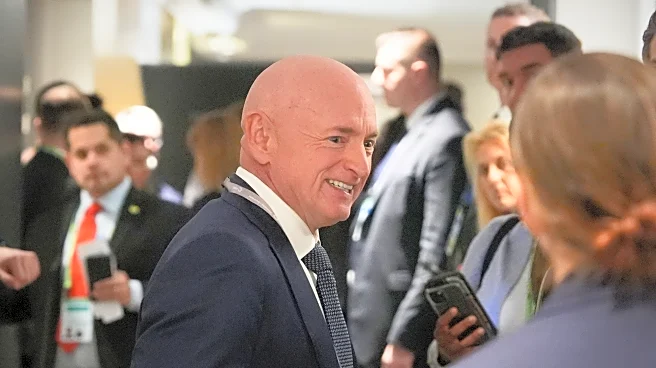What's Happening?
Hamas has agreed to a ceasefire proposal mediated by Arab countries, including Egypt and Qatar, but Israel has yet to respond. The proposal includes a 60-day ceasefire and the release of some hostages, with negotiations for a lasting ceasefire and the return of remaining hostages. The plan aims to allow humanitarian aid into Gaza to address severe starvation. Egyptian Foreign Minister Badr Abdelatty emphasized the urgency of Israel's response to alleviate the humanitarian crisis. Israeli Prime Minister Benjamin Netanyahu's office has not commented on the proposal, while some Israeli officials oppose a partial deal. The situation remains tense as humanitarian groups warn of worsening conditions in Gaza.
Why It's Important?
The ceasefire proposal is significant as it offers a potential pause in hostilities and a chance to address the dire humanitarian situation in Gaza. The ongoing conflict has resulted in substantial casualties and destruction, exacerbating the humanitarian crisis. A ceasefire could provide a window for aid delivery and reduce civilian suffering. However, the lack of response from Israel and internal opposition to the proposal highlight the complexities of achieving peace. The situation underscores the broader geopolitical tensions in the region and the challenges of negotiating peace amid longstanding hostilities.
What's Next?
The international community will likely continue to pressure both sides to agree to the ceasefire and facilitate humanitarian aid. Israel's response will be crucial in determining the next steps. If the ceasefire is accepted, it could lead to further negotiations for a more permanent resolution. However, if rejected, the conflict may continue, worsening the humanitarian crisis. Stakeholders, including international organizations and governments, will monitor developments closely, advocating for peace and humanitarian relief.










